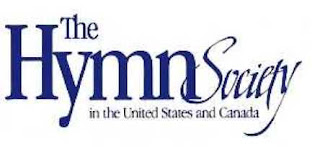 Today is the birthday of New England reformer Adin Ballou. He was born in 1803 into a Six-Principle Baptist family, but they converted ten years later to the Christian Connexion. In 1822, Ballou became a Unitarian (thereupon being disinherited by his father), but he was also intrigued by the doctrines of Restorationism and Practical Christianity, and tried to combine strains from all of these in his writing and lecturing over the next several years.
Today is the birthday of New England reformer Adin Ballou. He was born in 1803 into a Six-Principle Baptist family, but they converted ten years later to the Christian Connexion. In 1822, Ballou became a Unitarian (thereupon being disinherited by his father), but he was also intrigued by the doctrines of Restorationism and Practical Christianity, and tried to combine strains from all of these in his writing and lecturing over the next several years.Still more "conversions" followed; he formed a denomination called the Massachusetts Association of Universal Restorationists in 1831, the same year he was dismissed from his Unitarian pulpit in Milford, MA. In 1838 he declared himself a follower of Christian Non-Resistance (what we might call pacifism), and shortly thereafter published a pamphlet called Standard of Practical Christianity. Believing that for Christians to make their beliefs into reality, they had to refashion society, he founded a utopian community named Hopedale on a farm outside Milford. He and his followers embraced his causes of Non-Resistance and Practical Christianity, as well as abolitionism, temperance, and women's rights.
Now we get to the hymn part. The Hopedale Collection of Hymns and Songs, for the Use of Practical Christians, compiled by Ballou and including several hymns written by him, was published in 1850. The hymnal contained many established psalm paraphrases and older texts by Watts, Wesley, and others. Perhaps in accordance with Ballou's support for women's rights, there is a good proportion of texts by women; established writers such as Anne Steele and Anna Laetitia Barbauld, and some who were members of the Hopedale community, such as Abby Price and Mary Colburn.
The new texts by Ballou and his followers were largely instructional, meant to reinforce the beliefs of the community. The hymnal contains the usual sort of sections, such as "Devotional," "Jesus Christ," and "Joy, Gratitude, Praise," but also sections for hymns of "Temperance," "Anti-Slavery," and "Christian Non-Resistance."
For example, these abolitionist verses of Ballou's:
Shall kidnapped Afric's race,
In Southern bondage held,
Forever plead their deep distress
And coldly be repelled?
O Lord, in thunder tones,
Rebuke these giant crimes;
Behold the victims, hear their groans,
And rescue them betimes.
The challenges of living in community were (perhaps) addressed in another hymn, which began:
My fleshly lusts I hate,
And all their works detest;
Yet strangely on their mandate wait,
And do their vile behest.
The citizens of Hopedale were longing for a better world, seen in Ballou's Years are coming, speed them onward (perhaps his only hymn to survive into the twentieth century). A more specific goal than world peace was expressed in these verses from another hymn:
Not individual souls alone
Require the new and heavenly birth,
Society, in sin up-grown,
Needs Christianizing o'er the earth.
The principles, by Jesus taught
Must be impartially applied,
And social institutions brought,
With laws divine to coincide.
While interesting in their historical and social context, none of these hymns is likely to be sung anywhere today. This following one of Ballou's perhaps comes closest for a modern congregation, though I think it might need a different first verse and the "non-resistant" jargon seems a bit clumsy today.
Forbear that treacherous sword!
Its deadly blade restrain;
For they that trust its base support
Shall perish with the slain.
Thus Jesus promptly stayed
Impetuous Peter's arm,
And though to murderous foes betrayed,
Forbade to do them harm.
Obedient to his voice
The first disciples proved --
And bore their non-resistant cross,
By scorn and wrath unmoved.
And let the faithful still
Revere its high command,
Returning only good for ill
With ever generous hand.
Adin Ballou, 1850
Tune: BOYLSTON (S.M.)
Lowell Mason, 1832
I think Lowell Mason's BOYLSTON is the kind of tune that would have been known and sung by the people of Hopedale. Ballou clearly believed in the "powerful engine" of hymn singing (as Tuesday's Reginald Heber called it). Tuesday nights in Hopedale were devoted to community singing because Ballou felt that they needed more opportunities than Sunday worship to express their faith through song. He published another hymnal in 1856, Communal Songs and Hymns.
Like most other utopian communities, Hopedale had a fairly brief life, lasting only until 1856. It continued as a church, Hopedale Parish, in 1867 was admitted to the Unitarian denomination, and still is open today. Adin Ballou remained as the minister until his retirement in 1880.
Today, an organization of Friends of Adin Ballou continues to espouse his belief in a future of peace and cooperation.
